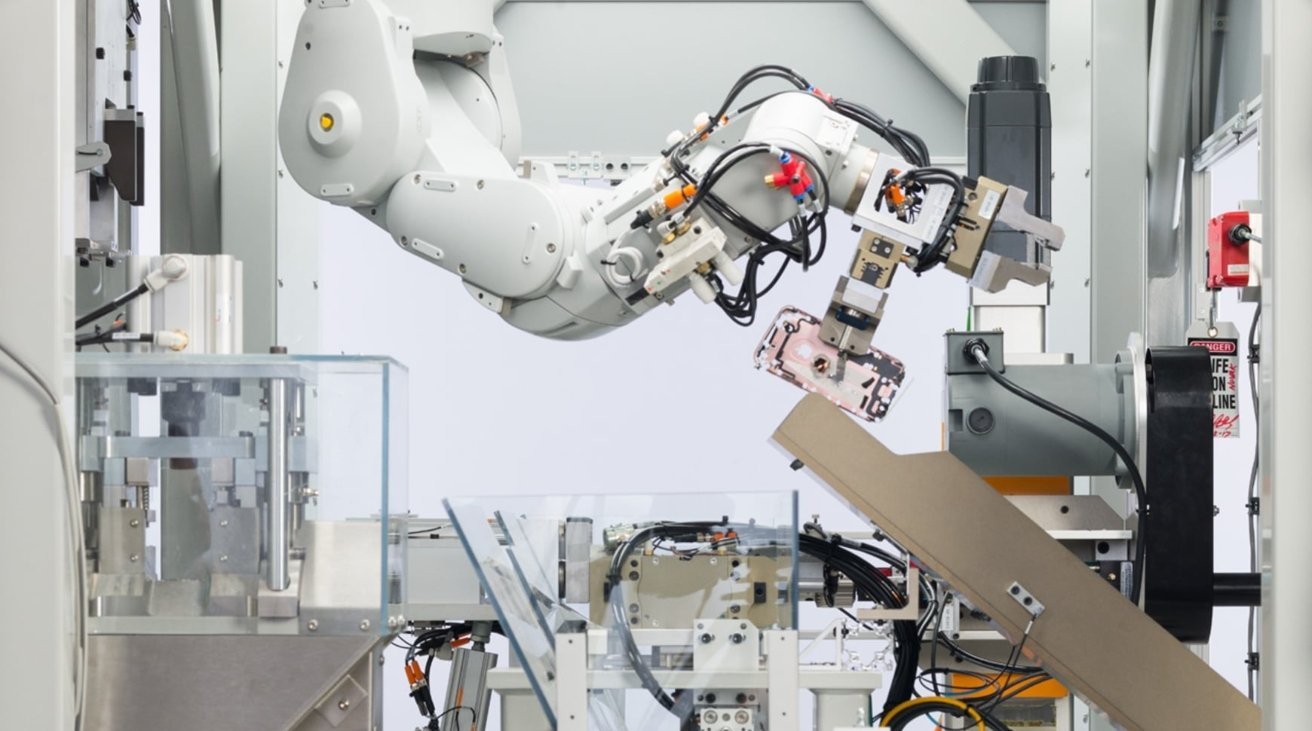E-waste is a major issue across the globe, and one company based out of Ireland with direct ties with Apple is aiming to mitigate some of that impact. Here's how.

Apple's iPhone recycling robot, Daisy
Apple has its own goals for trying to reduce its impact on the environment, including the iPhone recycling robot Daisy, to help dismantle old iPhones. However, the company also relies on third-party companies to help with these endeavors, which includes Alchemy.
As reported by The Next Web, Alchemy is an Ireland-based "circular tech company." That means that it handles the full cycle of a device that's turned in for trade.
When a device like an iPhone or MacBook is traded in at an Apple Store, that device is sent off to Alchemy which then takes over the process. Alchemy then handles the recovery, repair, and resale of those devices.
The company is doing what it can to help mitigate the massive e-waste problem the global economy pushes out every single year. For instance, in 2022 that economy saw a total of 50 million tonnes of e-waste thanks to discarded devices.
Alchemy started out small, but now has around 60 warehouses that are located across the United States, Europe, and Asia. They have to make sure to remove all sensitive data from the devices they receive, and Apple audits the company every six months.
Alchemy is more about the refurbished element of the trade-in process. For instance, if an old iPhone is traded in that's incapable of being refurbished, it will likely make its way to the aforementioned recycle robot, Daisy.
Once a device is wiped and refurbished, Alchemy sells it through a couple of different marketplaces, Loop Mobile and Callisto. The former is accessible through big box retailers like Amazon and Walmart, while the latter relies on other secondhand retailers.
An iPhone's internals
It's not a secret that Apple products retain value. Alchemy says that despite its age, the company sells upwards of 15,000 iPhone 8 models every single day. The push for secondhand devices comes down to a "flattened tech curve," according to Alchemy's CMO, James Murdock.
"In the early 2000s the advances in technology between models was huge," Murdoch said. "When a new Nokia 95 or HTC device came out it left the old model obsolete. But now, the tech curve has flattened somewhat, leaving older phones with decent residual value. As you can imagine, this has been a gamechanger for the refurb market."
And while Apple doesn't directly make a profit from secondhand market sales, the circular tech industry does help the company.
That's because even secondhand devices help boost Apple's market share, and boosts the company's other revenue streams, including the Services division.
Apple will continue to utilize third-party companies like Alchemy moving forward, but that doesn't mean it is weakening its own involvement in the process to make its range of devices to have less of an impact on the environment right out of the gate. For instance, the company is planning to move to 100% recycled cobalt in its iPhone batteries by 2025.
